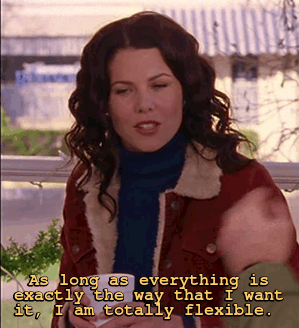Episode #15 - Managing a departure that puts you in a bind
Hello and welcome to Tricky Management Situations !
Onirio delves, just for you, into all those delicate, sometimes seemingly improbable (but oh-so-real!) challenges that the world of management throws our way. In each episode, you'll find tips to gain some perspective and expertly navigate through your tricky managerial situations
In today's episode, we take a look at an unavoidable situation: managing a departure.
Enjoy your reading!
If you haven't already done so, you can also :
Read all episodes published to date
Discover theOnirio team and follow us on LinkedIn
Subscribe to our newsletter to receive future articles by email
🛶Today's Struggle: How do you deal with a departure Managing a departure that puts you in a bind?
You're a manager, and one of your team members has decided to resign. Unfortunately, this departure couldn't have come at a worse time. Everyone on the team is already quite busy, and this employee is an expert who's handling critical projects on their own. To top it off, it seems like they're planning to take it easy until their departure! 😫
How do you handle this situation professionally and respectfully?
⛔ Watch out for dumplings!
In the face of an unwanted departure, it's better to avoid:
1️⃣ Taking the resignation personally and reacting emotionally: "You can't do this to us! Well, I guess you don't care about leaving us hanging." Or, on the contrary: "You're really going to be missed, I don't know how we'll manage without you! Wait another six months, you'll see" (even more guilt-inducing if you can shed a tear!). Professional and/or personal reasons explain this employee's departure. It's not a personal rejection. 😉
2️⃣ Pressuring the employee to stay: "I was planning to give you leadership of that project you wanted! Performance evaluations are coming up, and you were going to be well rewarded for your results this year! What are they offering on the other side; we can probably match it?" If the employee has already made their decision, trying to persuade them is likely to be useless. And if they change their mind because you promise them a promotion or a raise, is that really reassuring about their long-term commitment? It could also be uncomfortable regarding the rest of the team...
Source: City of Fear (1994) / Téléma / Le Studio Canal+/ France 3 Cinéma / M6 Films
3️⃣ Announcing the resignation to everyone too early, before anything has been finalized on the HR side . For the resignation to be valid, the employee must have freely consented to it and clearly and unequivocally expressed their intention to resign (it requires written confirmation!). Otherwise, hello legal disputes!
4️⃣ Radically changing your behavior towards the employee following the announcement of their resignation. Some golden observations here: treating the employee as if they no longer know anything about their responsibilities; avoiding or even ignoring them; requesting additional reports to make sure the work gets done; abruptly taking away their projects without prior notice... ⇒ ⚠️ This is a NO GO: it carries the risk of discrimination or harassment claims!
💡 Best practices for managing a resignation peacefully
When an employee is on their way out, it's essential to maintain a professional atmosphere and positive relationships to ensure commitment and motivation within your team and with the departing employee.
Some advices...
1) Right after the announcement:
Listen and delve into the reasons for this resignation: Are they professional or personal? Are there elements related to the organization, your management, team dynamics, interpersonal relationships, the employee's intrinsic motivations, etc., that need exploration? These elements are important for evolving your management practices, team organization, and the overall employee experience within your company.
Show that you accept his decision and will support it, both with your superiors and in potential professional reference requests (even if deep down you're disappointed to lose a valuable team member 😊). Remind them that you have full confidence in their abilities and commitment.
Schedule a follow-up meeting in the next few days, explaining that you need to step back and consider the impact of this resignation on the team and the company.
2) After the announcement, during the transition phase :
Assess the situation on your end, with the support of your superiors and your HR department: Will a replacement through internal mobility or external recruitment be necessary? If so, what kind of profile will you need? How soon can this be achieved? Will you need the employee's assistance for a smooth handover of their areas of expertise?
Keep the resignation confidential until the employee is ready to discuss it publicly. Once the legal framework has been validated by your organization's Human Resources department (notice period, departure date, etc.), agree with the employee on how to announce his or her resignation to the rest of the team: when? Does the employee want to announce it themselves, can the reasons for their resignation be communicated, and in what manner?
Collaboratively plan the handover of their responsibilities: list together all the areas the employee manages independently and those to which they contribute. Work with them to determine the best course of action for each (delegating to other team members, having a successor take over, putting non-priority projects on hold, etc.). After taking some time to reflect, you can make decisions that seem most appropriate and possibly consult the rest of the team on a new distribution of responsibilities.
Maintain regular check-ins until the end: keep track of the handover to motivate the employee to continue working on their responsibilities and ensure a smooth transition. And - we hope it won't be necessary, but… - this will make possible any necessary adjustments if the employee indeed starts to slack off.
3) Just before their departure:
Conclude on a positive note with a one-to-one discussion: thank the employee for their contributions, review their major achievements, your best collaboration memories, and take the opportunity to wish them good luck in their future endeavors.
Celebrate past collaboration with a farewell party for the whole team : a resignation is a perfectly normal event in the corporate world. Make it a positive moment with your team! Reminisce about your best formal and informal collaboration memories together.
4) After the departure:
After the employee leaves, you can organize a period of reflection and future planning with your team:
How did they experience this departure?
How do they envision the future?
Are there any collective working methods that need to be reconsidered?
In conclusion
Resignations are a natural part of corporate life. The best way to prepare for them and avoid getting into a bind? Establish a knowledge and skills transfer process within your team. Several options are available: mentoring, job sharing, sharing of experiences... Find what works best for your operations. 😉
À for the next episode!
In each episode, Onirio explores a managerial situation and gives you advice on how to take a step back and adopt the right reflexes!
To find all the episodes already published, go to here !
To discover discover upcoming management challenges, you can follow us on our LinkedIn page or subscribe to our mailing list below.
Have you experienced managerial difficulties? Inspire us!
We're sure you've been in plenty of situations that would merit an article 😉. And we're always looking for inspiration for our next episodes. So drop us a line with a description of your troubles! We'll be delighted to explore your situations!
This management situation explored with 💙 by Onirio was brought to you by Celia Santiago.







